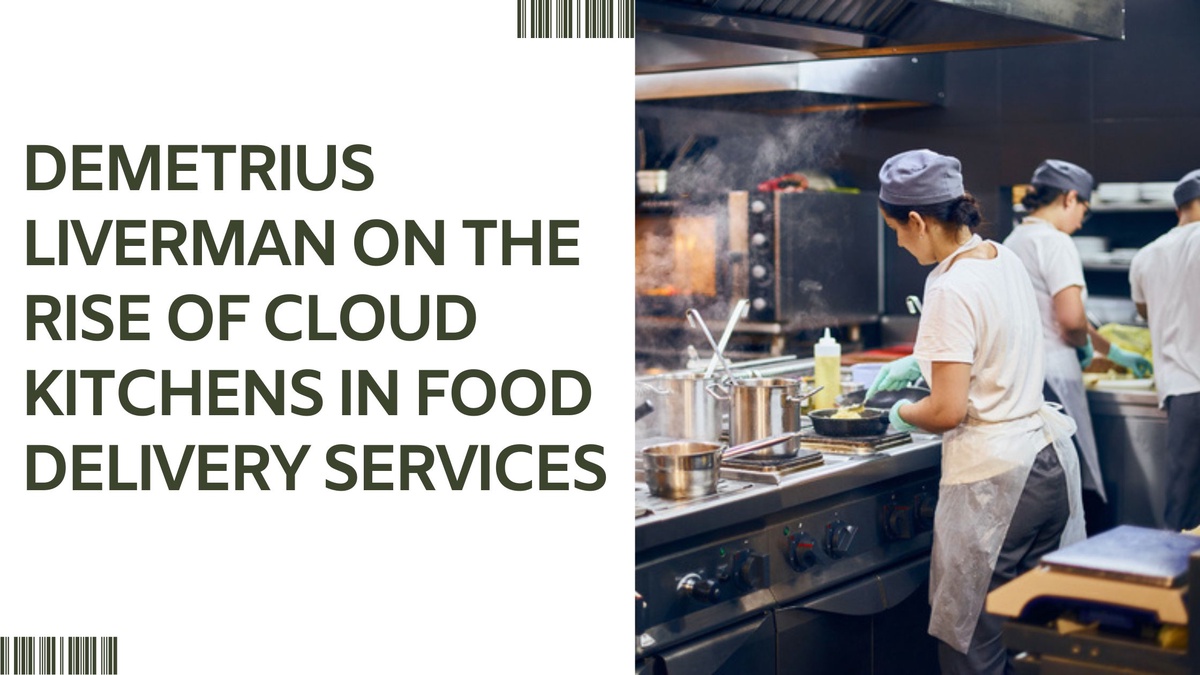The food delivery landscape has seen a significant transformation in recent years, with the emergence of cloud kitchens at the forefront of this evolution. These kitchens, which operate exclusively to fulfill delivery orders, have revolutionized the way we think about dining out. Demetrius Liverman, a prominent figure in the food industry, has been closely observing this trend and shares insights into the rise of cloud kitchens and their impact on food delivery services.
What are Cloud Kitchens?
Cloud kitchens, also known as ghost kitchens or virtual kitchens, are professional food preparation and cooking facilities set up for the exclusive production of food for delivery. Unlike traditional restaurants, cloud kitchens do not have a physical dining space and focus solely on preparing meals for online orders. This model allows for more streamlined operations and reduced overhead costs, making it an attractive option for both established restaurants and new food entrepreneurs.
Cost-Efficiency and Scalability
One of the key advantages of cloud kitchens is their cost-efficiency. By eliminating the need for a physical dining space and reducing overhead costs associated with running a traditional restaurant, cloud kitchens can offer competitive pricing without compromising on the quality of food. This cost-saving model has enabled many food entrepreneurs to enter the market with lower upfront investment, making it easier to scale and expand their operations.
Flexibility and Innovation
Cloud kitchens offer a high degree of flexibility and innovation, allowing chefs and food entrepreneurs to experiment with new culinary concepts and menu items. With no limitations on space or location, cloud kitchens can easily adapt to changing consumer preferences and dietary trends. This flexibility has led to the rise of unique and specialized food concepts, catering to niche markets and providing consumers with a wider variety of options to choose from.
Technology and Data-Driven Operations
The integration of technology is another key factor driving the success of cloud kitchens. Advanced kitchen management systems and delivery platforms enable seamless operations, from order placement to preparation and delivery. These technologies also provide valuable data and insights into consumer behavior, allowing cloud kitchens to optimize their menu offerings, pricing strategies, and marketing efforts. Demetrius Liverman emphasizes the importance of leveraging technology to enhance efficiency and customer satisfaction in the rapidly evolving food delivery landscape.
Meeting the Demand for Convenience
In today's fast-paced world, consumers are increasingly seeking convenience and flexibility when it comes to dining options. Cloud kitchens cater to this demand by offering quick and efficient delivery services, often with shorter wait times compared to traditional restaurants. With the rise of mobile ordering apps and online platforms, consumers can easily browse menus, place orders, and track deliveries in real-time, enhancing the overall dining experience.
Challenges and Opportunities
While the growth of cloud kitchens presents numerous opportunities for food entrepreneurs and consumers alike, it also comes with its own set of challenges. Competition in the food delivery market is fierce, and maintaining high-quality standards and consistent customer service is crucial for success. Additionally, the reliance on third-party delivery services can pose logistical and operational challenges, requiring cloud kitchens to carefully manage their partnerships and logistics to ensure timely and efficient deliveries.
The Future of Cloud Kitchens
As the food delivery landscape continues to evolve, cloud kitchens are expected to play an increasingly important role in shaping the future of dining. With their cost-efficient model, flexibility, and focus on technology-driven operations, cloud kitchens are well-positioned to meet the changing demands of consumers and adapt to emerging trends in the food industry. Demetrius Liverman predicts that we will see a continued growth in the number of cloud kitchens and a diversification of culinary concepts and offerings, catering to a wide range of tastes and preferences.
Conclusion
The rise of cloud kitchens in food delivery services represents a significant shift in the way we think about dining out and ordering food. With their cost-efficient model, flexibility, and focus on technology-driven operations, cloud kitchens offer a viable and innovative solution to meet the changing demands of today's consumers. As the industry continues to evolve, Demetrius Liverman emphasizes the importance of leveraging technology and data-driven strategies to optimize operations, enhance customer satisfaction, and drive growth in the rapidly expanding food delivery market.


No comments yet